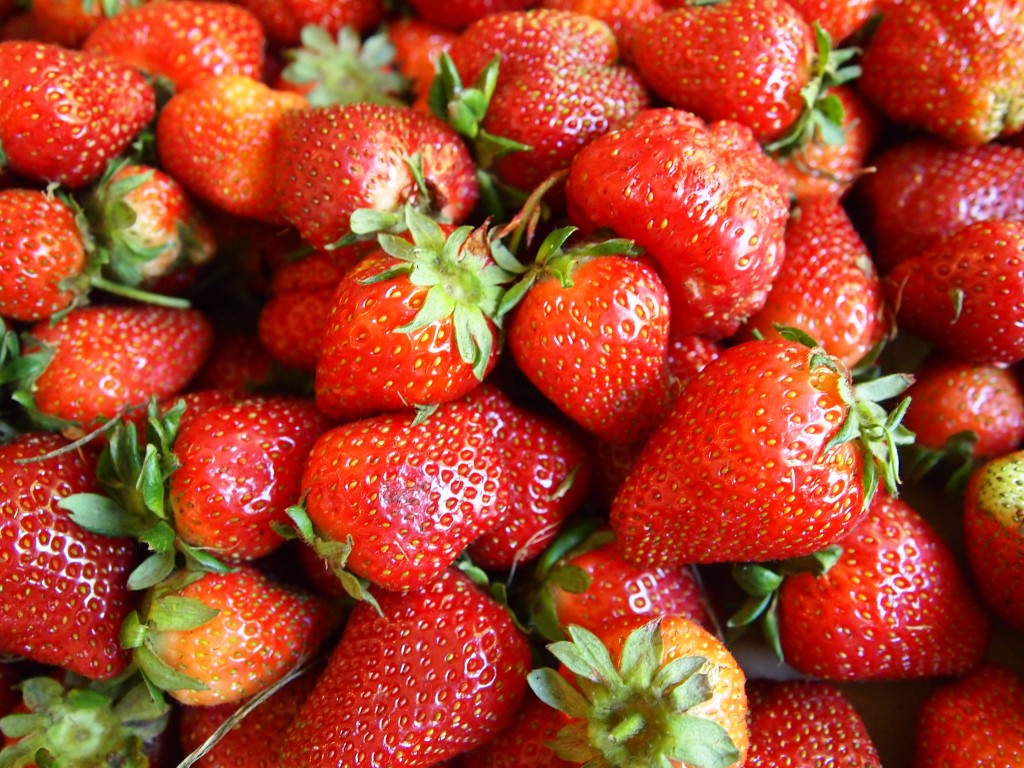
The Proven Benefits of Keeping a Food Journal
Photo Credit: Walt Stoneburner, via Flickr Creative Commons
The simple act of writing down what you eat can positively impact the food you choose. Research shows that you’ll eat less food and higher quality food, which will promote weight loss and overall health. The National Heart, Lung and Blood Institute at the National Institutes of Health funded Kaiser Permanente’s Center for Health Research to conduct one of the largest and longest weight-loss maintenance trials.
The study, which was published in the American Journal of Preventive Medicine, found that those who kept daily food journals consumed fewer calories, resulting in twice as much weight loss, as those who did not keep journals. The study indicated that about 70% of participants lost enough weight to lower their health risks because they kept track of what they eat daily.
Being mindful of how you feel before and after you eat can help identify the true reasons why you eat.
Better Awareness
Keeping a food journal makes us more aware of our choices and encourages us to be more mindful of not only what we are eating, but also how, why, and when we are eating. It sheds a light on our patterns of eating. When do you skip meals? Are you overeating at night? Do you mindlessly snack throughout the day? It also helps identify certain triggers of unhealthy eating. Are you grabbing that vending machine cookie or bag of chips when feeling stressed or bored at work? Do you eat a late night bowl of ice cream because you’re feeling lonely? You may notice that you are eating more food than you need, but are not getting enough nutrition.
Food diaries are a valued tool recognized by dietitians, health coaches, therapists and other medical professionals. Keeping a food record of everything you eat and drink was identified as the #1 key strategy for weight loss in a study published in the Journal of the Academy of Nutrition and Dietetics. It allows a dietitian or other health professional to recognize how your food choices are impacting your health. Often a dietitian has a client keep a food record prior to a nutrition consultation in order to best assess the amount of food that client eats and their eating patterns.
Food Trackers and The Ornish Program
ʺWhen a participant begins the Ornish Lifestyle Medicine, they are asked to keep track of everything they eat on their food trackers, which allows them to become more aware of their food choices and at the same time provide information to the Ornish-registered dietitian about their nutrition and experience in the program. The food trackers are collected and reviewed weekly throughout the program and have proven to be an effective tool in adopting this new heart-healthy style of eating.
In general, food trackers are a growing trend and range from high-tech, smartphone food journals and trackers to low-tech pencil and paper options. What matters most is capturing your experience and what you observe. Whatever your chosen recording style or program, it is helpful to include a few basic elements. The information you include in your journal depends on the challenge you are tackling, whether it’s trying to lose a few pounds, identifying potential food sensitivities, tracking adequate nutrition or reversing heart disease. Whatever the motivating factor, there are a few key areas to focus on in order to reap the most benefits.
What to Track
Food
The most obvious and most important is writing down everything you eat and drink. The key is to be truly honest and not just record the healthy foods. Being honest helps makes journaling more effective as a learning tool to create healthier habits that will promote your overall health and well-being.
Portion Size
Include the specific amount of food that is consumed, such as a cup of ice cream or berries, a tablespoon of butter, a 15-ounce bag of chips or 25 almonds. Depending on your goal, it is imperative, at least as first, to measure your food to see how much you are actually eating. The amount of food we consume is often what escapes us because we may be eating mindlessly. Think about that 24-ounce bag of chips that disappears when you’re watching a TV show. Writing down how much you eat can help to give you a comparison to the actual suggested serving size on the food label.
Time
Noting the time of day that you ate something helps to identify your pattern of eating. For example, you can see if you’re skipping meals or going too long without eating, which leads to unhealthy eating later in the day or night. This can help you to establish more balanced eating strategies to improve your eating habits and health.
Place
Another factor that helps you identify your patterns is tracking where you eat. Are you rushing and eating in the car or mindlessly eating in front of the TV? How often are you dining out or eating at fast food restaurants? Are you sitting down and eating at the dinner table or standing at the counter while multitasking? Identifying where you eat can help you make mindful changes that affect the quality of our food choices.
Hunger Level
This is a valuable factor to include in a food journal that allows greater awareness of why you are eating and how much you are eating. Many people eat outside of true physical hunger and eat beyond feeling satiated. This mindfulness eating strategy can help you to stop eating when you are satisfied, not full, and to choose to eat only when you are truly physically hungry.
Feelings
Being mindful of how you feel before and after you eat can help identify the true reasons why you eat. You’ll learn what can trigger unhealthy eating patterns such as emotional eating at night or raiding the vending machine at work due to stress. Once you identify the emotional connections to eating, you can work towards meeting those emotional needs in more effective and healthy ways. Try keeping a food journal for a couple weeks and see what you learn. Using it as a learning tool to observe your portions, habits, and the types of foods you eat will help you cultivate more mindfulness. Dr. Ornish often says, “Awareness is the first step in healing.” Keeping a food journal will get you on track to overall improved health and well being.
Do you keep a food journal? If yes, how has it affected the amount you eat and your eating habits?







